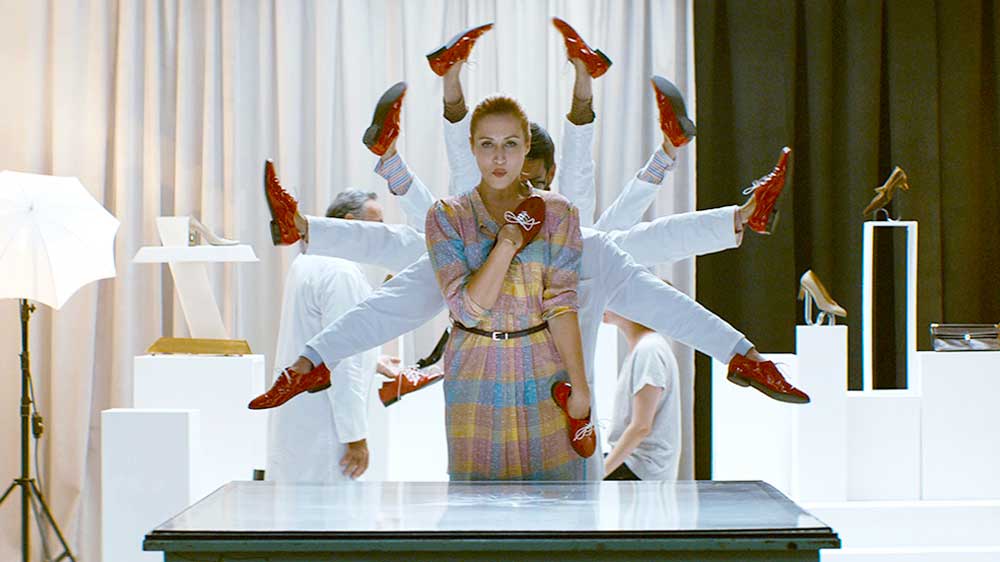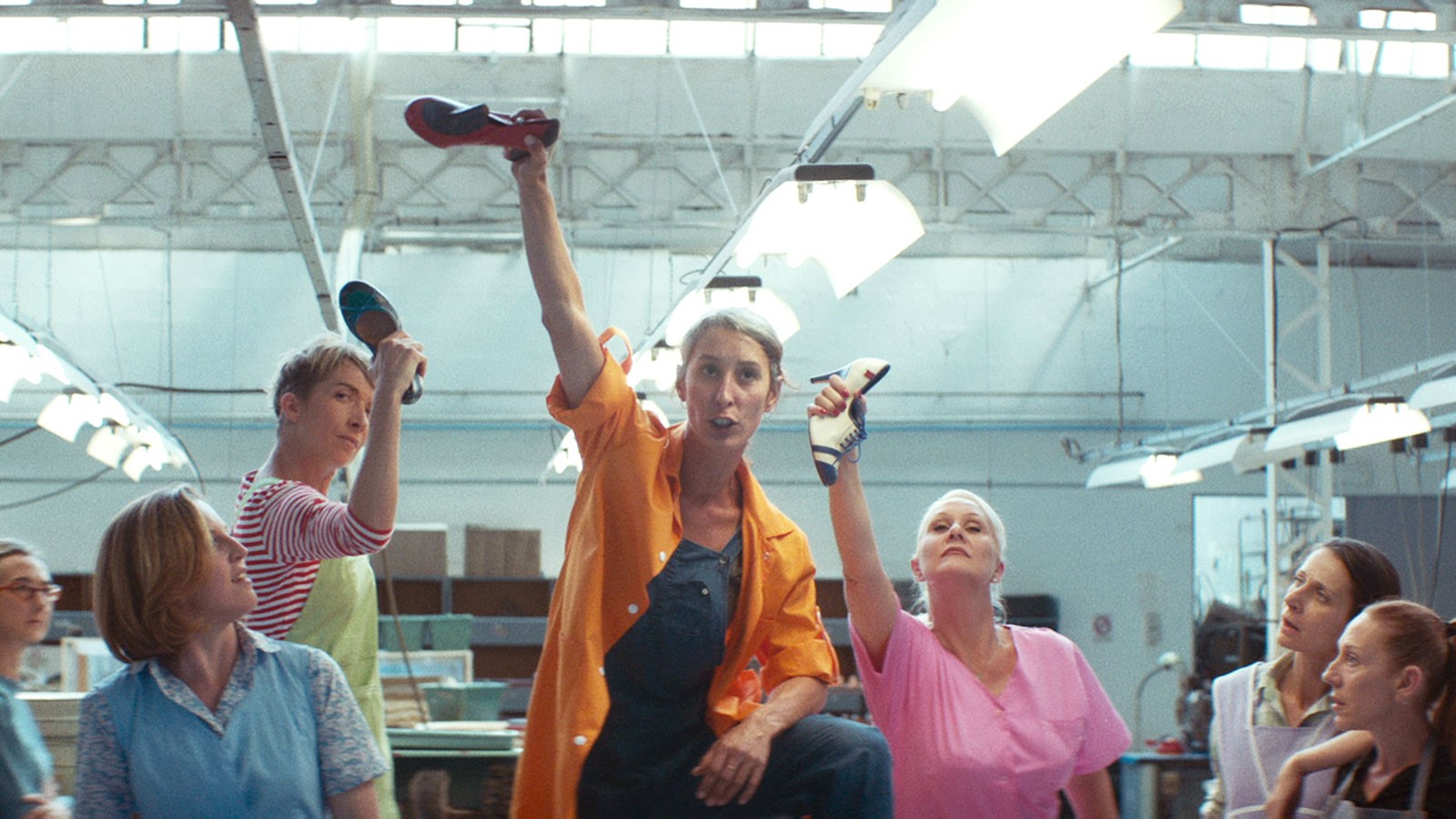FOOTNOTES (on CINE-FILE Chicago)
 Scott Pfeiffer
Scott Pfeiffer  Friday, September 1, 2017 at 03:17PM
Friday, September 1, 2017 at 03:17PM While I had a few reservations, FOOTNOTES tickled me, precisely because it is so very French. My writeup's at CINE-FILE Chicago. It plays this week at the Gene Siskel Film Center. I reprint my review below.


Does the prospect of a French socialist musical-comedy where singing female workers occupy their factory excite you? It does me, and I found Paul Calori and Kostia Testut FOOTNOTES a likable, amusing, and rather innocuous blend of fantasy and social realism. Set in rural Romans-sur-Isère, site of a luxury shoe factory where committed designers once lovingly handcrafted women's shoes, the film immediately contrasts those halcyon days with our era, cutting to a wall of mass-produced footwear at an antiseptic retailer, where a taciturn young woman (Pauline Étienne) is being turned down for a job. She finally secures a tryout period as a stock packer in the historic factory itself. Almost immediately, the all-female staff learns of management's plans to downsize, and the spunky workers strike to save their jobs. They must fight their piggy male bosses, both the local one (François Morel), himself a hapless cog, and the boss's boss, a rakish dissembler (Loïc Corbery). I always believed Etienne as this quiet but strong-willed young woman, who reveals her core of resilience when she sings. Buffeted by the recession and the McJob economy, she's been everything from (as one of her songs tells) a floor-scrubber at an abattoir to Santa Claus. A trucker (Olivier Chantreau) romances her, a dreamer who fancies himself a bit of an existential cowboy. Co-writers/directors Testut and Calori modeled this film after social-conflict musicals like Jacques Demy's UNE CHAMBRE EN VILLE and Stanley Donen's THE PAJAMA GAME. (The latter featured choreography by Bob Fosse, another avowed influence.) Their graceful handheld camera frames the dancers in pastel compositions of quite exquisite balance. Some may find the light, whimsical chanson a bit twee or quaint; while it veers towards Muzak at times (intentionally?), I thought it quite pretty and, at its best, it's got that breathy, ardent sexiness that only works when sung in French. At times, this feels just a tad tentative. Still, when the women fight the men who have come to empty out the warehouse, it's dance as bitter hand-to-hand fighting. When the women rally by recreating one of the factory's vintage '60s models, a beautiful ruby number "the color of blood and revolt, of kisses stolen and heartbeats," I naturally thought of Powell and Pressburger's THE RED SHOES, but also, oddly, of the sections of Philip Roth's American Pastoral about the family-run glove factory, which speak to its values of careful, local quality versus cheap quickness. As the women begin to make their own history, they put their shod feet forward on social media and chant "rebel, rebel, rebel" (co-director Testut did his thesis on Guy Debord and Situationalism, but he wears it lightly). Showing the reality of the labor that goes into producing these enchanted commodities, this film is a slice of life topped with a slice of mille-feuille. It's earnest, humane, and admirably free of irony, striking a note of hope and dreams without settling for easy uplift.


Reader Comments